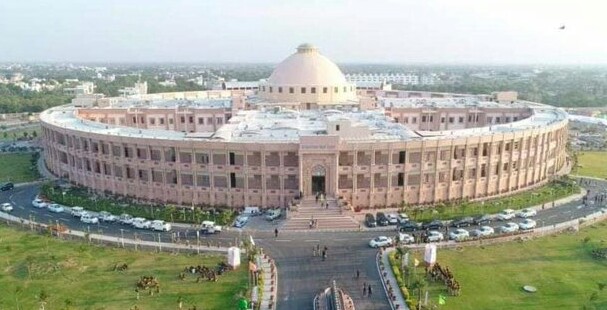The Court said that merely because there is no law prohibiting adultery does not mean that people can marry other persons in secrecy during the subsistence of first marriage.
The Delhi High Court recently observed that absence of a law making adultery an offence does not provide people blanket immunity from marrying other persons during the subsistence of first marriage.
Justice Swarana Kanta Sharma said that merely because there is no law prohibiting adultery does not mean that people can marry other persons in secrecy during the subsistence of first marriage and then argue that the first partner must prove that the second marriage was solemnized after performing essential rites and ceremonies.
The Court, therefore, said that mere inability of a spouse to prove performance of saptapadi with regards to second marriage of his/ her husband/wife at the summoning stage in a bigamy case, should not be misused to evade legal consequences.
“Thus, this Court takes cognizance of the fact that the inability of one partner to prove performance of saptapadi by the other partner while marrying for the second time during subsistence of first marriage, at the stage of summoning itself, especially when the other partner may have solemnized such marriage with the third person in secrecy, should not be exploited as a clever tactic to circumvent the legal consequences of committing offence of bigamy. While legal proceedings do involve strategic elements, such smart maneuvers should not be allowed to compromise the principles of fairness and justice,” the single-judge said.
The Court acknowledged the difficulty in proving second marriage which often happens in secrecy.
It will be contrary to the general spirit of Indian law if at the stage of summoning itself, a wife is made to prove beyond reasonable doubt that all ceremonies required for solemnization of a marriage were performed by the husband in his second marriage, the Court made it clear.
“In any case, it cannot be expected that the husband of a wife will get married for the second time, during the subsistence of earlier marriage, after informing her first wife or in her presence so that she can collect evidence of his second marriage and the ceremonies performed therein. It will be a cumbersome burden on a woman to be asked to first prove every ceremony of the second marriage of the husband, even before issuing summons,” the judgment said.
The Court made the observations while dealing with a plea filed by a woman against the Sessions Court judgement setting aside a magistrate’s court summoning her husband, his alleged second wife and his parents in a case filed under Section 494 of Indian Penal Code (IPC).
Section 494 criminalises bigamy.
The High Court was told that the petitioner and husband got married in the year 2011. However, her husband married another woman some time in the year 2015 and a child was born out of their union in 2016.
The petitioner produced income affidavits, a photograph of the wedding as well as birth certificate of the child to argue that her husband had married for the second time.
After considering the case, the High Court set aside the Sessions Court order and upheld the magistrate’s decision to summon the accused in the case.
Advocates Malavika Rajkotia, Ramakant Sharma, Prateek Avasthi and Purva Dua appeared for the petitioner wife.
The respondent-husband, the alleged second wife and husband’s parents were represented by advocates Giriraj Subramanium, Ravi Pathak, Akhilesh Tallur, Simarpal Singh Sawhney, Joy Banerjee and Siddhant Juyal.



